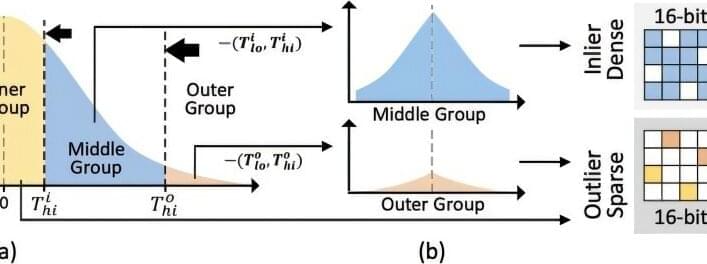Finnish researchers have advanced quantum computing by achieving a record coherence time for transmon qubits.
Get the latest international news and world events from around the world.




Devices that pull water out of thin air poised to take off
More than 2 billion people worldwide lack access to clean drinking water, with global warming and competing demands from farms and industry expected to worsen shortages. But the skies may soon provide relief, not in the form of rain but humidity, sucked out of the air by “atmospheric water harvesters.” The devices have existed for decades but typically are too expensive, energy-hungry, or unproductive to be practical.
Now, however, two classes of materials called hydrogels and metal-organic frameworks have touched off what Evelyn Wang, a mechanical engineer at the Massachusetts Institute of Technology (MIT), calls “an explosion of efforts related to atmospheric water harvesting.”
So far, none of the devices can compete with established approaches to augment water supplies, such as desalinating seawater. But some applications—cooling data centers and slaking the thirst of soldiers on the move—could support higher costs until the technology scales up, says Samer Taha, CEO of Atoco, a California-based startup. “There are many applications where atmospheric water harvesting can help.”


Novartis receives approval for first malaria medicine for newborn babies and young infants
Basel, July 8, 2025 – Novartis today announced Coartem® (artemether-lumefantrine) Baby has been approved by Swissmedic as the first malaria medicine for newborns and young infants. The new treatment, also known as Riamet® Baby in some countries, was developed in collaboration with Medicines for Malaria Venture (MMV) to treat the potentially deadly mosquito-borne disease.
Eight African countries also participated in the assessment and are now expected to issue rapid approvals under the Swiss agency’s Marketing Authorization for Global Health Products procedure.1 Novartis plans to introduce the infant-friendly treatment on a largely not-for-profit basis to increase access in areas where malaria is endemic.
“For more than three decades, we have stayed the course in the fight against malaria, working relentlessly to deliver scientific breakthroughs where they are needed most,” said Vas Narasimhan, CEO of Novartis. “Together with our partners, we are proud to have gone further to develop the first clinically proven malaria treatment for newborns and young babies, ensuring even the smallest and most vulnerable can finally receive the care they deserve.”

AI cloud infrastructure gets faster and greener: NPU core improves inference performance by over 60%
The latest generative AI models such as OpenAI’s ChatGPT-4 and Google’s Gemini 2.5 require not only high memory bandwidth but also large memory capacity. This is why generative AI cloud operating companies like Microsoft and Google purchase hundreds of thousands of NVIDIA GPUs.
As a solution to address the core challenges of building such high-performance AI infrastructure, Korean researchers have succeeded in developing an NPU (neural processing unit) core technology that improves the inference performance of generative AI models by an average of more than 60% while consuming approximately 44% less power compared to the latest GPUs.
Professor Jongse Park’s research team from KAIST School of Computing, in collaboration with HyperAccel Inc., developed a high-performance, low-power NPU core technology specialized for generative AI clouds like ChatGPT.

Man with no programming skills wins 200 IT hackathons thanks to AI
Rene Turcios, 29, from San Francisco, has won 200 IT hackathons in two years, an ambitious achievement for someone with no programming skills.
René is a professional Yu-Gi-Oh! player, cannabis enthusiast, and reseller of Labubu toys, but he devotes most of his time to participating in IT hackathons. Since 2023, he has attended more than 200 events and won cash prizes and software credits.
The craziest thing about all this is that Tursios has no programming skills and is a representative of a new generation of programmers — the so-called web coders, i.e. people who write code with the help of AI chatbots.
